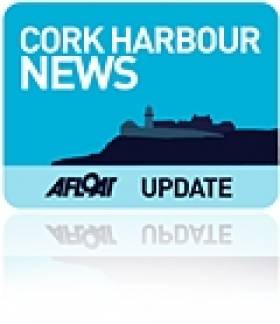Displaying items by tag: unauthorised
'Unauthorised' Harbour Moorings to be Removed
The Port of Cork intends to remove all unauthorised or illegibly marked moorings in Cork harbour this winter and has written to harbour users about the removal which will start next month.
The Port Company recently completed a detailed survey of all moorings within Cork Harbour. A number of unauthorised and illegibly marked moorings have been identified in the course of the survey. The Port says it is the responsibility of the mooring holder to ensure that their mooring is in the correct position and is clearly marked at all times with the correct mooring number. All unauthorised or illegibly marked moorings will be removed over the coming months commencing on the 1st day of November 2010.
The Port has asked Royal Cork Yacht Club to bring the matter, affecting all harbour users, to the attention of its members according to a post on the club website.
The post also says that all boats are requested to obey the speed limits in various parts of the harbour, particularly on their way to the new pontoon in the city. Boats travelling at excessive speed make life very difficult for other harbour users, particularly the members of the rowing clubs on the river.





























































